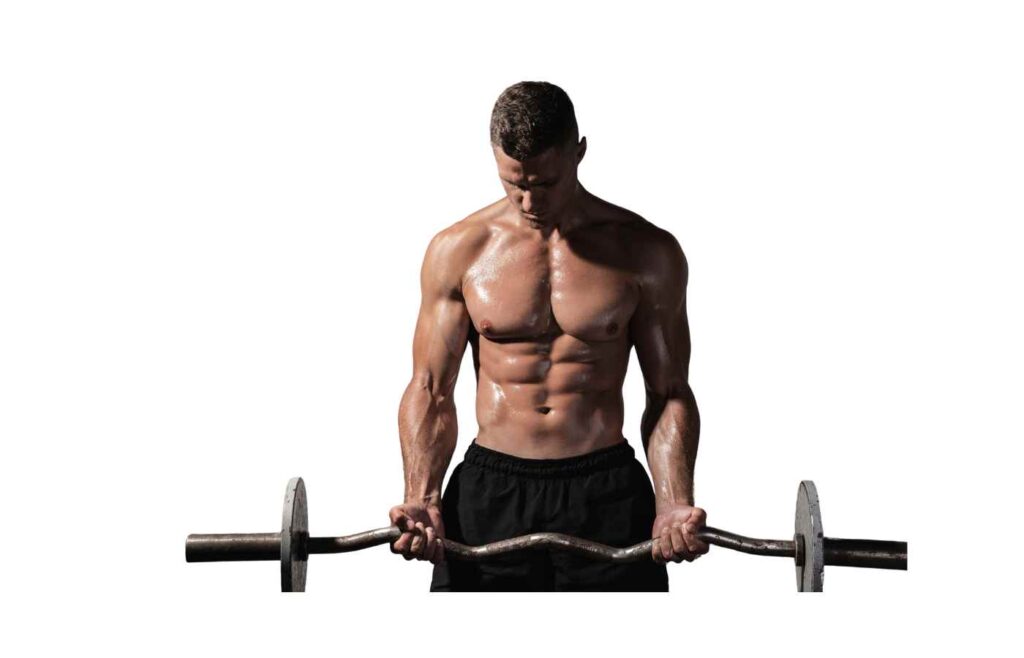
TESTOSTERONE REPLACEMENT THERAPY CLINIC
WHAT IS TESTOSTERONE?
Looking for low testosterone treatment? First, let’s examine what testosterone is and the role it plays in our bodies. Testosterone is a hormone that is primarily produced in the testes (in men) and in smaller amounts in the ovaries (in women) and adrenal glands. It is an androgen hormone, which means it plays a role in the development and maintenance of male characteristics, such as facial and body hair, deepening of the voice, and muscle mass.
Testosterone also plays a key role in various bodily functions, including the production of sperm, bone density, muscle mass, and the regulation of mood and energy levels. Testosterone levels tend to decline naturally as men age, but abnormally low testosterone levels can lead to a variety of health problems, including reduced libido, erectile dysfunction, depression, and increased risk of osteoporosis and fractures.
WHO HAS LOW TESTOSTERONE?
Low testosterone levels are a common condition among older men, however, it can affect men of any age.
Some studies suggest that up to 39% of men over the age of 45 may have low testosterone levels, while another study estimated that up to 6 million men in the United States have low testosterone levels.
Low testosterone levels can be caused by a variety of factors, including aging, certain medical conditions, medications, and lifestyle factors.
WHAT ARE THE SYMPTOMS OF LOW TESTOSTERONE?
Low testosterone, also known as hypogonadism, can cause a variety of symptoms. The symptoms can be different for each person and can range from mild to severe. Some of the common symptoms of low testosterone include:
1. Reduced sex drive: Low testosterone can cause a decrease in sex drive or libido. Men with low testosterone may have little interest in sexual activity or experience difficulty in achieving or maintaining an erection.
2. Erectile dysfunction: Testosterone plays a role in achieving and maintaining an erection. Men with low testosterone levels may experience difficulty in achieving or maintaining an erection.
3. Fatigue: Low testosterone levels can cause a decrease in energy levels and fatigue. Men with low testosterone may feel tired even after getting enough sleep.
4. Muscle loss: Testosterone plays a role in building and maintaining muscle mass. Men with low testosterone levels may experience a loss of muscle mass and strength.
5. Mood changes: Testosterone can affect mood, and low testosterone levels can lead to depression, irritability, and other mood changes.
6. Decreased bone density: Testosterone is important for bone health, and low testosterone levels can increase the risk of osteoporosis and bone fractures.
7. Increased body fat: Low testosterone levels can lead to an increase in body fat, particularly in the abdominal area.
What is the relationship between low testosterone and erectile dysfunction?
Testosterone plays an important role in sexual function, including the ability to achieve and maintain an erection. Low testosterone levels can contribute to erectile dysfunction (ED), which is the inability to achieve or maintain an erection sufficient for sexual activity.
Testosterone helps to stimulate the production of nitric oxide, which is a molecule that helps to relax the blood vessels in the penis and increase blood flow, leading to an erection. Testosterone also helps to maintain the health of the tissues in the penis that are involved in the process of achieving and maintaining an erection.
Low testosterone levels can lead to a reduction in the production of nitric oxide and can also lead to a decrease in the health of the tissues in the penis, making it more difficult to achieve and maintain an erection. Additionally, low testosterone levels can lead to a decrease in libido or sex drive, which can also contribute to ED.
BENEFITS OF TESTOSTERONE REPLACEMENT THERAPY
Testosterone replacement therapy can provide a number of potential benefits, particularly for men with low testosterone levels. Some of the potential benefits of testosterone therapy may include:
1. Improved sexual function: Testosterone is a key hormone involved in sexual function, and low levels of testosterone can contribute to reduced libido, erectile dysfunction, and other sexual problems. Testosterone therapy can help improve sexual function and increase libido.
2. Increased muscle mass and strength: Testosterone is important for building and maintaining muscle mass, and low testosterone levels can lead to muscle loss and weakness. Testosterone therapy can help increase muscle mass and strength, particularly when combined with exercise.
3. Improved bone density: Testosterone is important for bone health, and low testosterone levels can increase the risk of osteoporosis and bone fractures. Testosterone therapy can help improve bone density and reduce the risk of fractures.
4. Improved mood: Low testosterone levels have been linked to depression, irritability, and other mood changes. Testosterone therapy can help improve mood and reduce symptoms of depression.
5. Increased energy levels: Testosterone is also important for energy and vitality, and low testosterone levels can lead to fatigue and low energy levels. Testosterone therapy can help improve energy levels and reduce fatigue.
HOW DO YOU FIX LOW TESTOSTERONE?
Luckily, modern medicine provides several safe, and effective low testosterone treatments known as testosterone replacement therapy. In fact, advances in testosterone replacement therapy for men make this imbalance easily correctable.
At Eternal Vitality of Orlando, we customize a testosterone replacement treatment plan that meets your body’s needs. Our professional medical team offers several safe and effective low testosterone treatments, including Testosterone Therapy and HGH/Peptide Therapy.
WHAT IS TESTOSTERONE THERAPY?
Testosterone Therapy, often referred to as Testosterone Replacement Therapy (TRT), is a simple procedure that restores the testosterone levels in your body. Once your levels of testosterone are balanced, you will experience more energy and drive, improving mood, sleep, memory, physique and more.
HOW DOES TESTOSTERONE TREATMENT WORK?
Once you schedule an appointment with our Eternal Vitality clinic, an on-staff medical professional will review your current health, lifestyle, and goals with you. Next, they will discuss a low testosterone treatment plan that works best with your body. Every treatment is personalized by our practitioners so we restore the ideal levels of the testosterone in your system.
HOW IS TESTOSTERONE ADMINISTERED TO PATIENTS?
Testosterone is administered as a weekly injection or as a daily cream. The method you use will depend on your preference and lifestyle while being dosed by the practitioner upon thorough review of your lab results and symptoms.
WHAT IS HGH/PEPTIDE THERAPY?
Human Growth Hormone, or HGH, is produced by the pituitary and spurs growth in children and adolescents. Once children grow up, HGH levels then decline to a maintenance level in the late teens and twenties when actual growth is no longer necessary.
Like testosterone, Human Growth Hormone declines with age, but the decline occurs much more quickly than the decrease in testosterone levels. The optimal levels for an adult decline rapidly with age even though they play an integral role in regulating body composition, muscle and bone growth, metabolism of sugars and fats, cardiac health, and even sexual performance.
Through Eternal Vitality’s Peptide Therapy, your levels of HGH will be restored and you will regain your energy and drive.
RESTORE YOUR ENERGY WITH ETERNAL VITALITY
Ready to get rid of your low T symptoms? At Eternal Vitality, we strive to provide our patients with the best care and safest medical treatments to help them achieve their health and wellness goals.
When it comes to male hormone therapy, our medical team will individualize a low testosterone treatment plan based on the results of your very own health tests, improving libido, restoring energy, and helping you reach your best health with Eternal Vitality.
